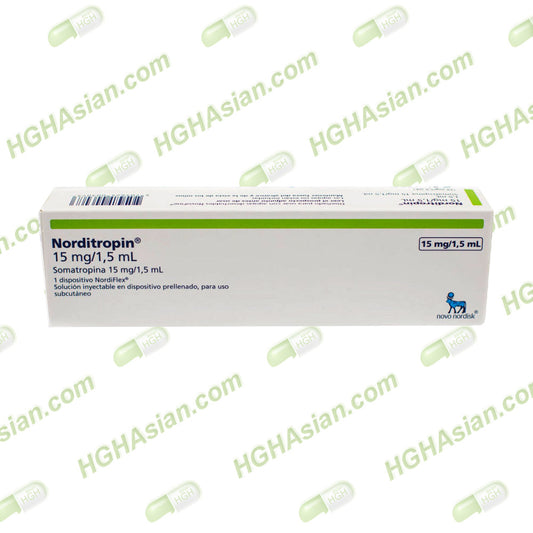Elevate Your Gains: Unlocking the Power of HGH Cycles for Optimal Muscle Growth
Human growth hormone fuels childhood growth and helps maintain tissues and organs throughout life. It's produced by your pea-sized pituitary gland at the base of your brain. As you age, your body's production of HGH decreases. Some anti-aging experts claim that using synthetic recombinant HGH can reverse some of the effects of aging. But is this true?
Who Can Use HGH?
Human Growth Hormone, or hGH, is a natural hormone produced by the pituitary gland. It promotes growth in children and helps regulate body fluids, muscle and bone growth, sugar and fat metabolism, and heart function. It also stimulates cell production, especially those that produce insulin-like growth factor, or IGF-1. It is used by athletes to improve performance and increase lean muscle mass, and it's sometimes taken along with anabolic steroids.
In adults, hGH promotes normal body structure and metabolism, but it does not increase height. It stimulates protein and lipid breakdown and increases the amount of energy your cells get from fats. It may also help control blood pressure and decrease the risk of diabetes.
Genetic factors and damage to the pituitary gland can cause a lack of growth hormone in children or hGH deficiency in adults. A blood test called a GH stimulation or suppression test can diagnose a deficiency. This test involves injecting a small amount of glucose and measuring your blood levels of IGF-1 and hGH afterward.
Many people who do not have a medical condition that affects their growth use HGH in the hope that it will slow aging and improve athletic performance. It is illegal to use hGH without a prescription, and using it for nonmedical reasons can cause serious side effects. Instead, seek ways to strengthen your body naturally through a healthy diet, adequate sleep, regular exercise, and good lifestyle habits.

Taking HGH for Muscle Gains
Human growth hormone is a naturally occurring substance in your body that's important for growth and cell reproduction. It's also known to increase your muscle strength and metabolism, and to delay aging by increasing protein production. Some athletes use hGH supplements to enhance their athletic performance and build muscle mass.
A physician will write a prescription for recombinant HGH if you have a medical condition requiring it. Some examples include Prader-Willi syndrome, Turner syndrome, AIDS-related muscle loss (AIDS wasting), and acromegaly (elevated levels of growth hormone leading to long bones and a very tall height).
Recombinant growth hormone is a protein with 191 amino acids and a molecular weight of 22 kDa. It's a single-domain, non-glycosylated globular hormone that requires careful manufacturing considerations because impurities can impact its bioactivity.
Your doctor will inject recombinant HGH intramuscularly or subcutaneously depending on the prescribed dose and your age and sex. Some brands of recombinant growth hormone are available as a sustained-release product that's given by injection every 2 or 4 weeks instead of daily. These are sold under the brand names Genotropin (Pfizer), Norditropin (NovoNordisk) and Humatrope (Lilly).
The use of recombinant HGH for enhancing athletic performance and building muscle mass is illegal without a prescription. However, illicit hGH is widely available on the black market in the others injection forms and nutritional supplements that claim to stimulate endogenous HGH release.
Example HGH Cycle for Muscle Gain:
Duration: 12 Weeks
Weeks 1-4:
- HGH Dosage: 2 IU per day (divided into two injections, morning and evening).
- Focus on establishing a baseline and monitoring initial response.
Weeks 5-8:
- HGH Dosage: Increase to 3 IU per day.
- Introduce consistent resistance training to capitalize on the potential muscle-building effects of HGH.
Weeks 9-12:
- HGH Dosage: Further increase to 4 IU per day.
- Optimize nutrition with a high-protein diet and proper supplementation.
- Maintain a well-structured workout routine with a mix of strength and hypertrophy training.
Post-Cycle:
- Gradually taper off HGH dosage in the final week.
- Continue with a maintenance training program and monitor for any changes or adjustments needed.
- Consider post-cycle therapy (PCT) under the guidance of a healthcare professional.
Important Notes:
- Always follow the guidance of a qualified healthcare professional.
- Monitor for potential side effects and adjust the dosage accordingly.
- Ensure proper nutrition, hydration, and recovery throughout the cycle.
- Regularly assess progress and make adjustments as needed.
Remember, individual responses to HGH can vary, and misuse can have serious consequences. It's crucial to approach HGH cycles with caution, and with a focus on overall health and well-being.
-
Genotropin 36 IU (12mg) pen
(15)
Regular price $249.00 USDRegular priceUnit price per$299.00 USDSale price $249.00 USDSale -
 Sold out
Sold outNorditropin 45 IU (15mg) pen
(3)
Regular price $349.00 USDRegular priceUnit price per$490.00 USDSale price $349.00 USDSold out -
GENOTROPIN 16 IU (5,3 MG) GOQUICK
()
Regular price $130.00 USDRegular priceUnit price per



